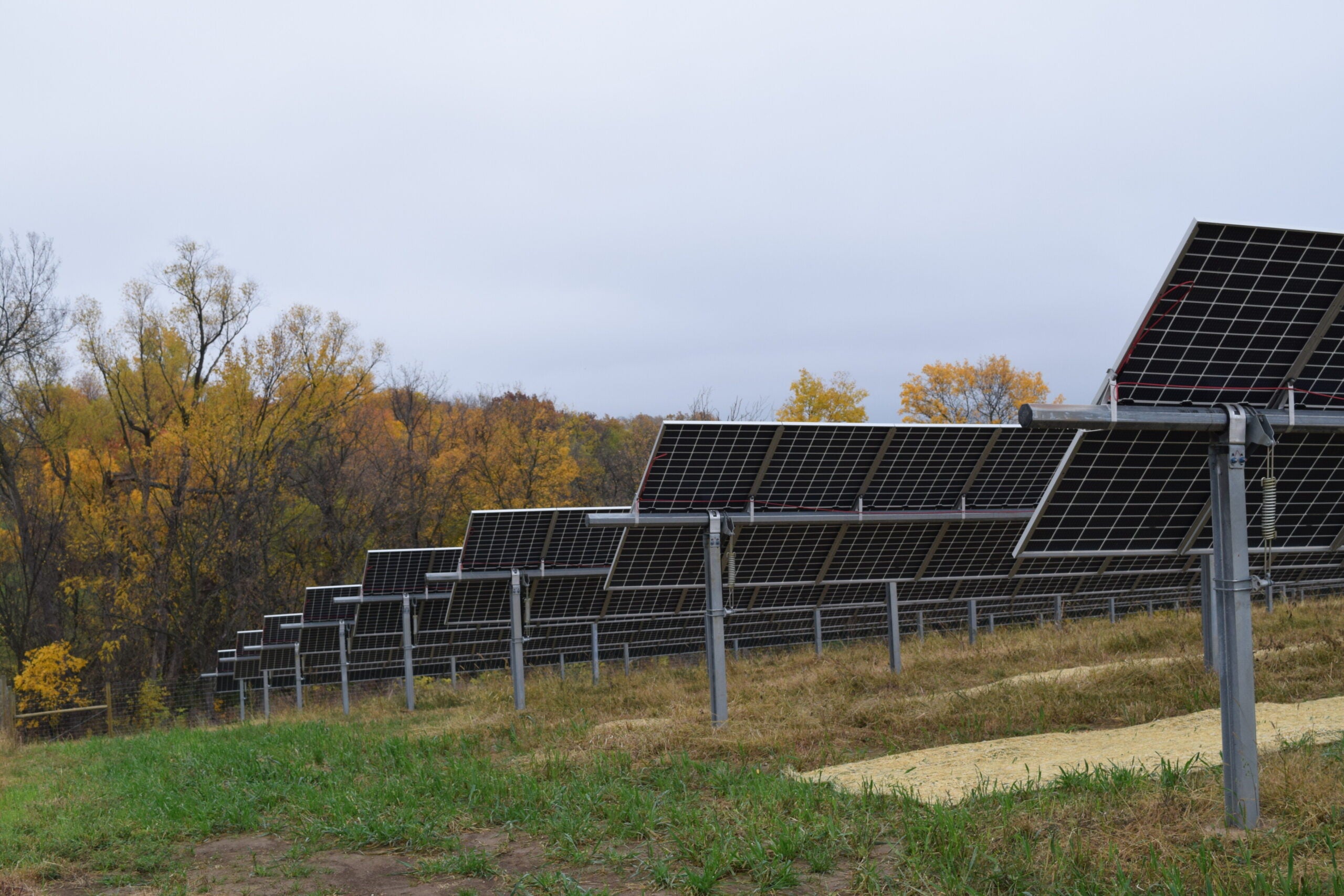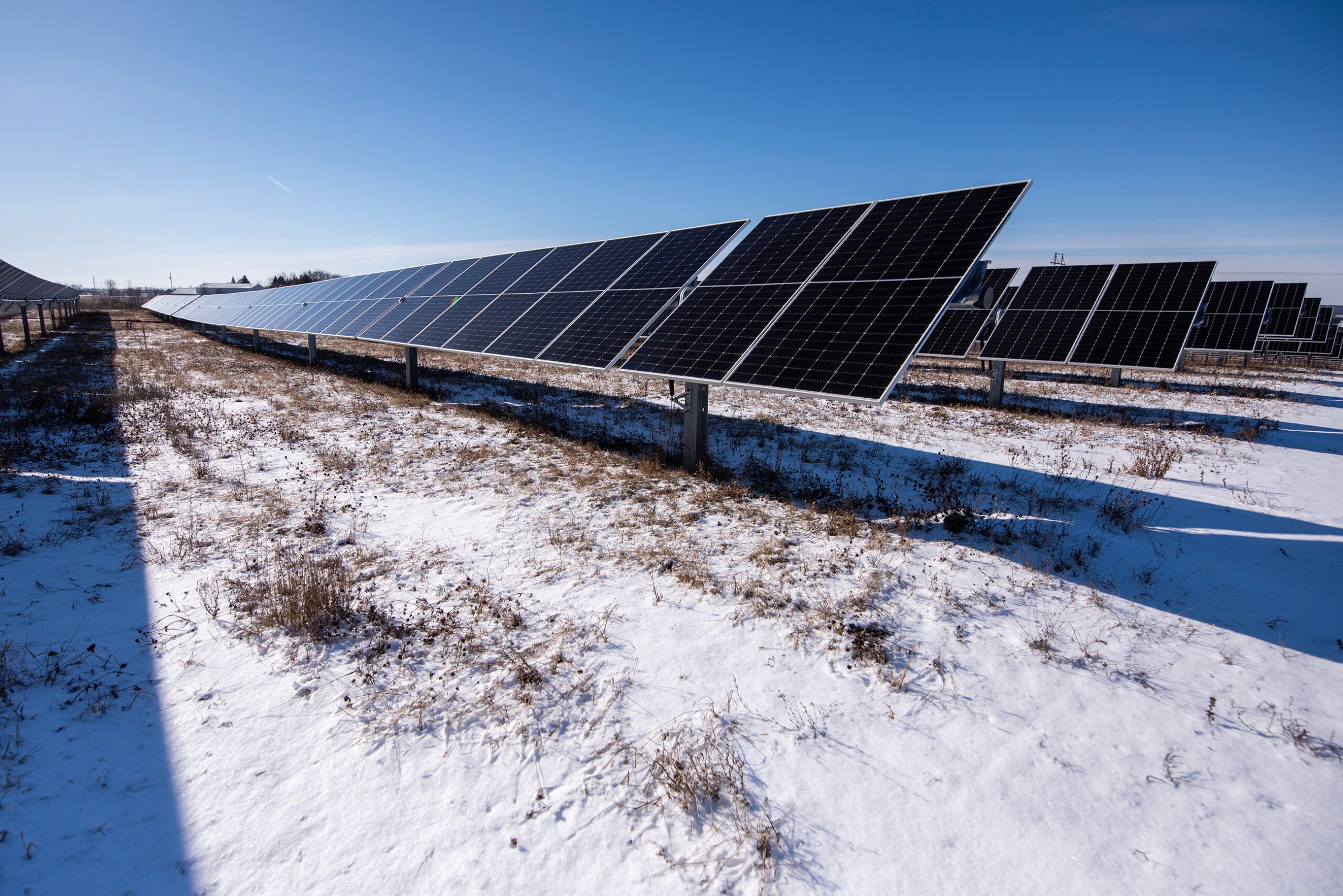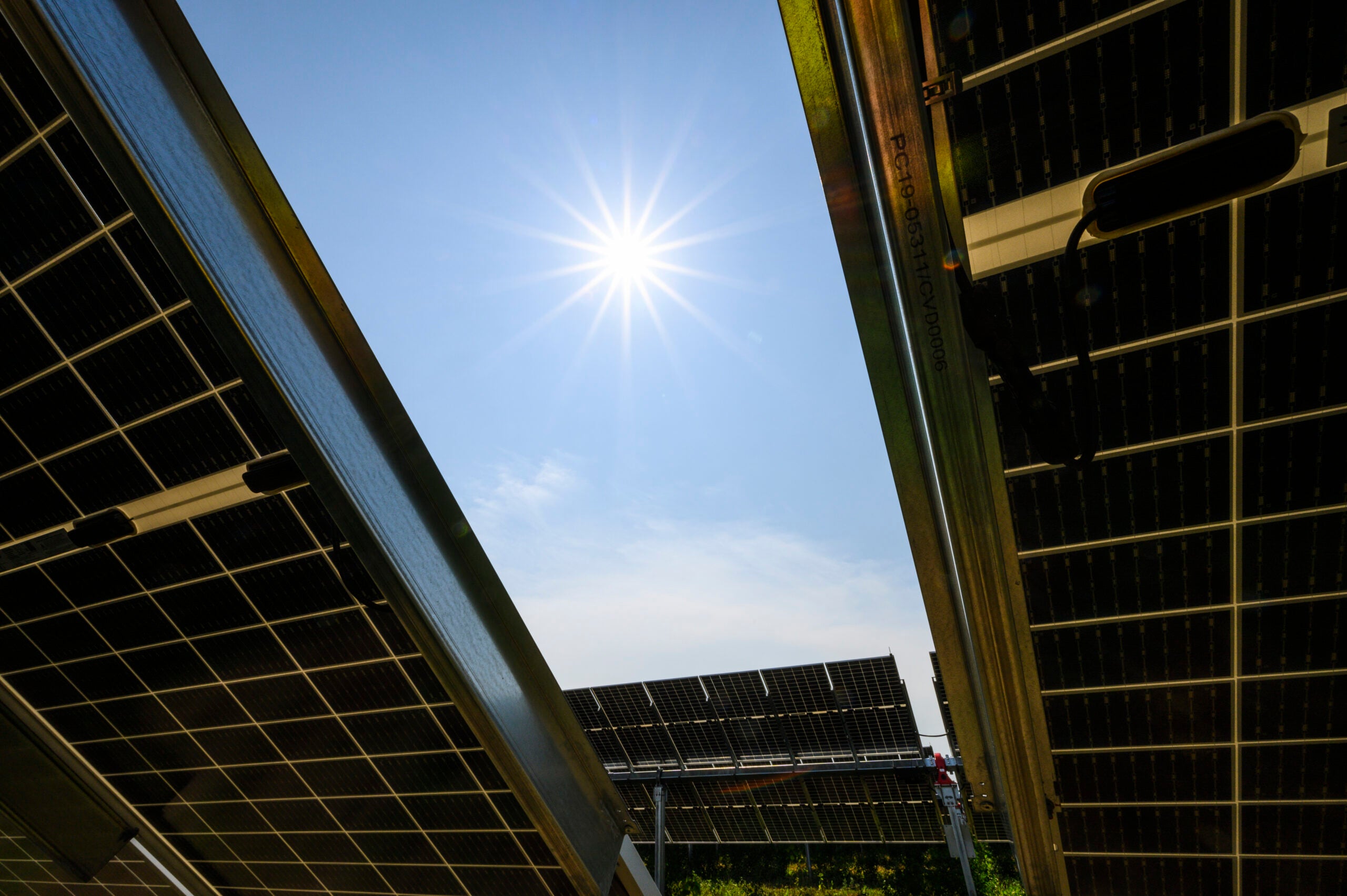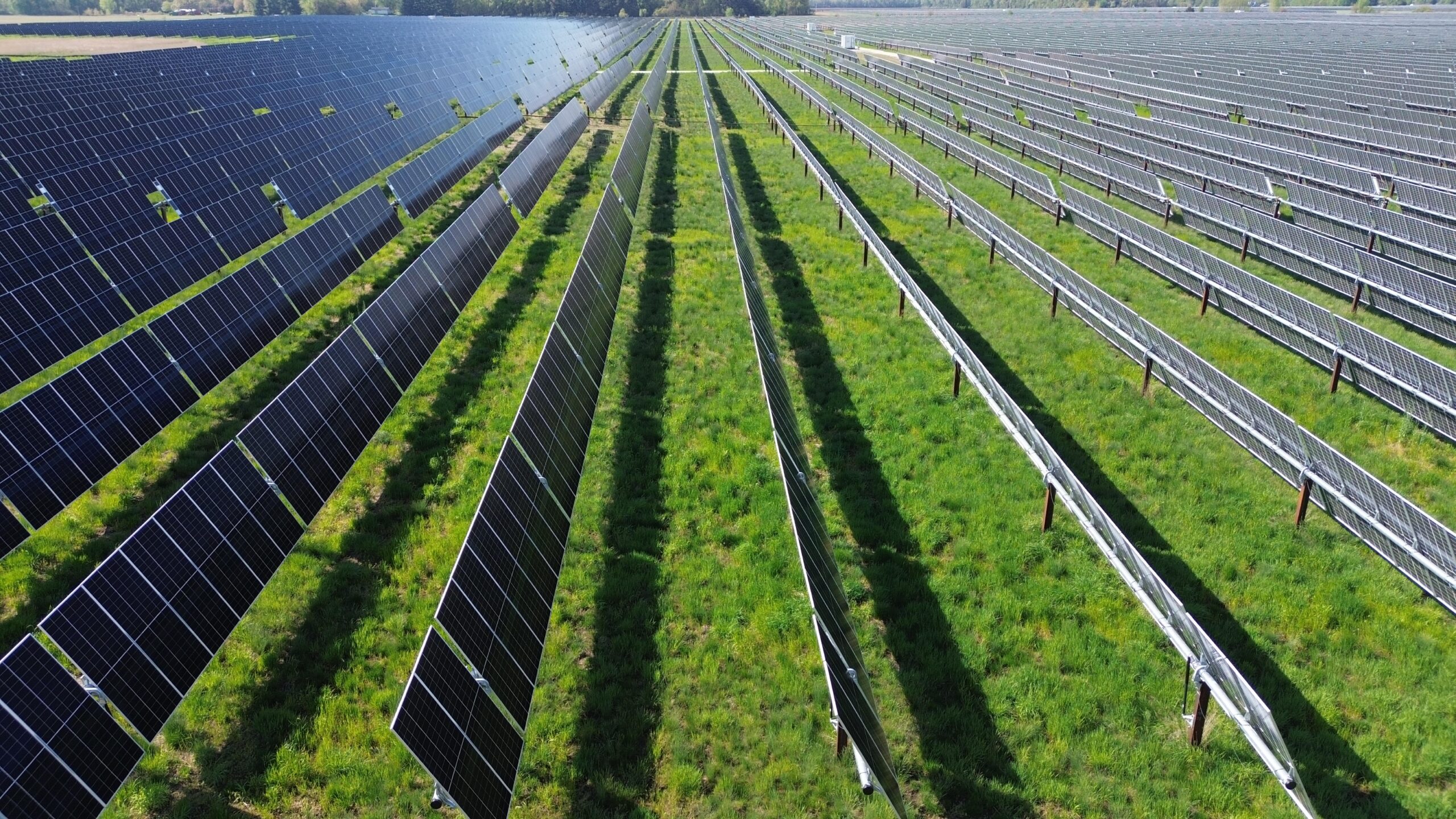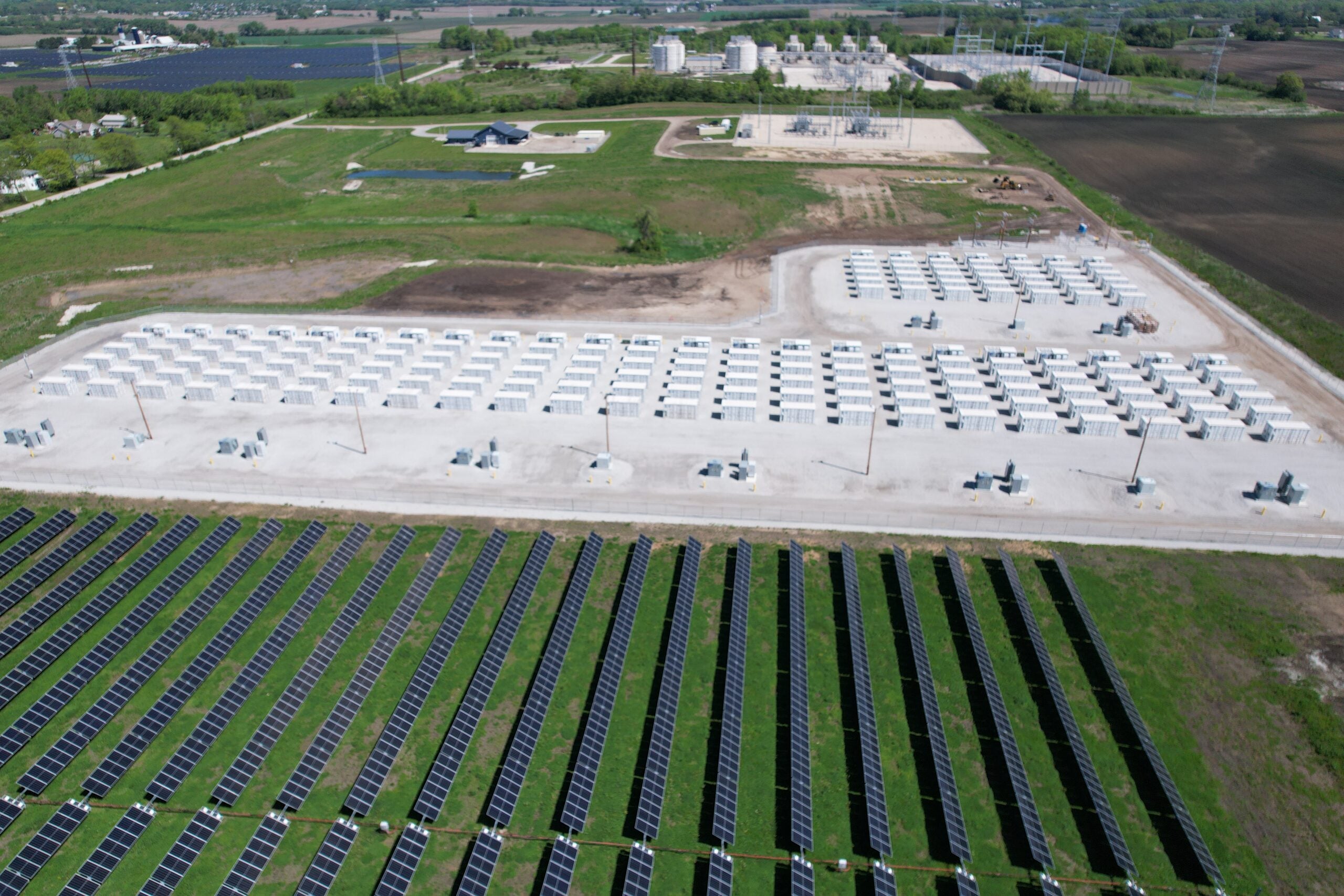How do you define a good life? Veronica Rueckert and Rob Ferrett talk to a guest philosopher and doctor about how to break down this question, and ask you to share what you think makes a good life. Then in Wisconsin Life a blind woman shares her experiences in the “isolation bubble” that people with a physical disability often face–and when the bubble is overcome. A Wisconsinite who’s losing his sight explains his campaign to travel the world to educate people about vision issues before he loses his sight. Veronica and Rob also discuss how a growing solar industry may be affecting utility companies’ profits.
Featured in this Show
-
Growing Solar Power Production Could Pose Challenges For Utilities Companies, Reporter Says
Solar power makes up less than 1 percent of Wisconsin’s energy consumption, but that hasn’t stopped some utilities companies from feeling threatened by the technology, according to a Milwaukee newspaper reporter.
Even though the growth of solar power hasn’t been as fast in Wisconsin as it has been in regions like the American Southwest, state utility companies are likely watching national trends, according to Milwaukee Journal Sentinel energy reporter Thomas Content.
“Around the country, (solar power) is growing so fast it’s expected to double just a few years nationally,” said Content.
According to Content, the growth can be attributed to two main factors.
“The costs are coming down No. 1, and No. 2, there are policies in place that let the homeowner or business rent the panels instead of own them,” he said.
Renting panels reduces the often-prohibitive upfront investment to install solar panels.
In order to help maintain profits, some Wisconsin utilities companies are proposing raises in fixed-monthly charges and decreases in payments to the owners of solar panels for the power they produce for the grid.
“From the utilities perspective, they say that this is something that is more accurate because the cost of the energy is currently paying for things beyond the energy,” said Content, referring to things like power stations and lines.
Opponents of the changes say that the policies would discouraging consumers from conserving energy because their bills would be less indicative of power actually used and would hit low-energy users the hardest.
According to Content, We Energies — the state’s largest energy producer — is proposing a 75 percent increase in its fixed charge. The proposal will have to be approved by state regulators before any jumps happen.
Content compared the tension between utility companies and consumers who might produce their own solar power energy to the tension between consumers and a now-antiquated regulated monopoly: streetcars.
The advent of privately-owned cars created a challenge to what had previously been a profitable, regulated monopoly.
-
Growing Solar Power Production Poses Challenges For Utilities Companies
Solar power still accounts for well under one percent of energy consumption in Wisconsin, but utilities companies appear to be bracing for a world in which more people are getting their power off the grid with proposed fixed monthly rate increases.
-
What Makes A Good Life?
A guest philosopher and doctor breaks down a fundamental question: what is a good life? You can share your answers about what makes a life worth living–and a life well-lived.
-
Wisconsin Life: Navigating The World While Blind
In Wisconsin Life, a blind woman shares her experiences with the “isolation bubble,” and what it’s like when the bubble is broken. Then a man suffering from Usher Syndrome Type 2, which will likely cause him to lose his sight, explains his quest to see the world before he loses his sight.
Episode Credits
- Rob Ferrett Host
- Veronica Rueckert Host
- Galen Druke Producer
- Amanda Magnus Producer
- Tom Content Guest
- Dr. Richard Gunderman Guest
- Mike Walsh Guest
Wisconsin Public Radio, © Copyright 2025, Board of Regents of the University of Wisconsin System and Wisconsin Educational Communications Board.

